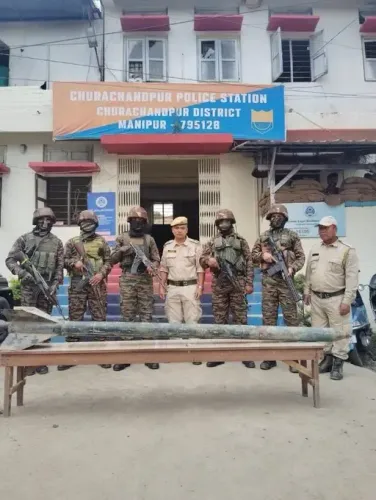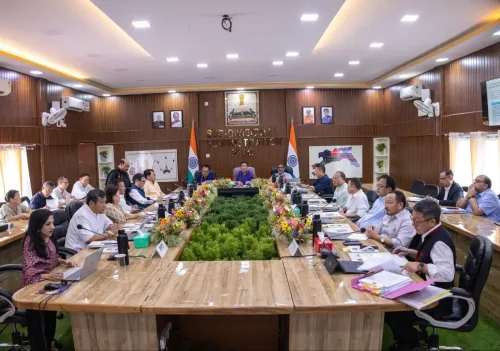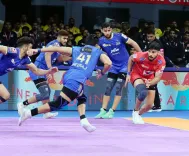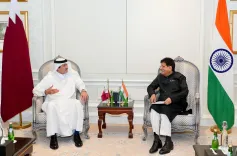Is the ECI Failing to Address Voter Duplication Allegations Raised by Rahul Gandhi?
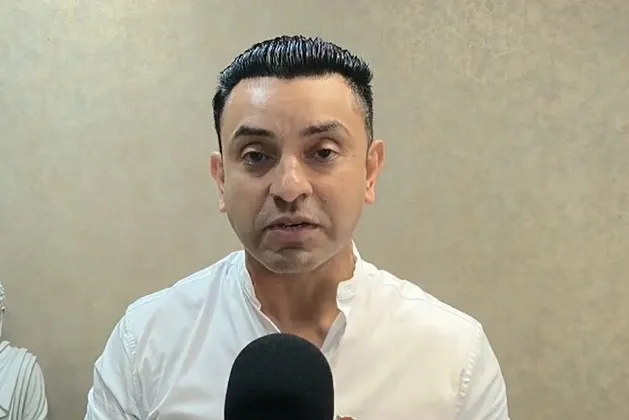
Synopsis
Key Takeaways
- Tehseen Poonawalla questions the ECI's effectiveness in handling voter discrepancies.
- Allegations of voter duplication raise concerns about electoral integrity.
- Transparency from the ECI is critical to maintain public trust.
- Legal avenues exist for challenging electoral rolls under the Representation of the People Act.
- Significant evidence is being compiled regarding potential voter fraud.
Pune, Aug 12 (NationPress) Political analyst Tehseen Poonawalla on Tuesday directed sharp inquiries at the Election Commission of India (ECI) following accusations from Rahul Gandhi, the Leader of the Opposition in Lok Sabha. Gandhi claimed that two voters, Aditya Srivastava and Vishal Singh, were registered in multiple states.
Poonawalla sought transparency regarding the actions the ECI is taking against Booth Level Officers (BLOs) who are allegedly responsible for such irregularities.
In an interview with IANS, Poonawalla stated, "What kind of electoral roll is this? Aditya Srivastava is securing jobs across Karnataka, Maharashtra, and Uttar Pradesh. In one modest home, there are 80 registered voters—none of whom belong to the same religion. In another residence, 46 individuals are registered, yet only three senior citizens actually live there. The ECI asserts that BLOs will rectify such mistakes—yet what exactly are they doing? What measures have been taken?"
He further emphasized, "This is the Election Commission of India, not the East India Company. The ECI seems preoccupied with demanding affidavits from Opposition leaders. Why don’t they submit affidavits to the Opposition? If the Opposition is fabricating stories, why not initiate legal action against them? These voter rolls are their responsibility—they either exist as stated or they do not."
Poonawalla also raised concerns about the legal options available for contesting such anomalies: "Under which law should the Opposition file a complaint? The Representation of the People Act clearly permits objections to electoral rolls within one month of their release. Such objections must be submitted to the returning officer—but who is the returning officer in these scenarios?"
Meanwhile, the Chief Electoral Officer (CEO) of Uttar Pradesh, Navdeep Rinwa, has dismissed Gandhi's allegations. According to the Congress leader, data extracted from the ECI’s website on March 16, 2025, indicated that Aditya Srivastava and Vishal Singh were registered in the Varanasi and Lucknow constituencies of Uttar Pradesh, as well as in other states.
On July 31, Gandhi presented a comprehensive 22-page document, lasting over an hour, detailing alleged irregularities in the voter list. Using the Mahadevpura Assembly seat in Karnataka as a case study, he asserted that the Congress party could have won 16 seats instead of nine if these duplications had been eliminated.
Gandhi further accused the ECI of intentionally providing non-machine-readable voter lists to obstruct fraud detection, revealing that his team spent six months sifting through stacks of paper "seven feet high" to gather evidence.

